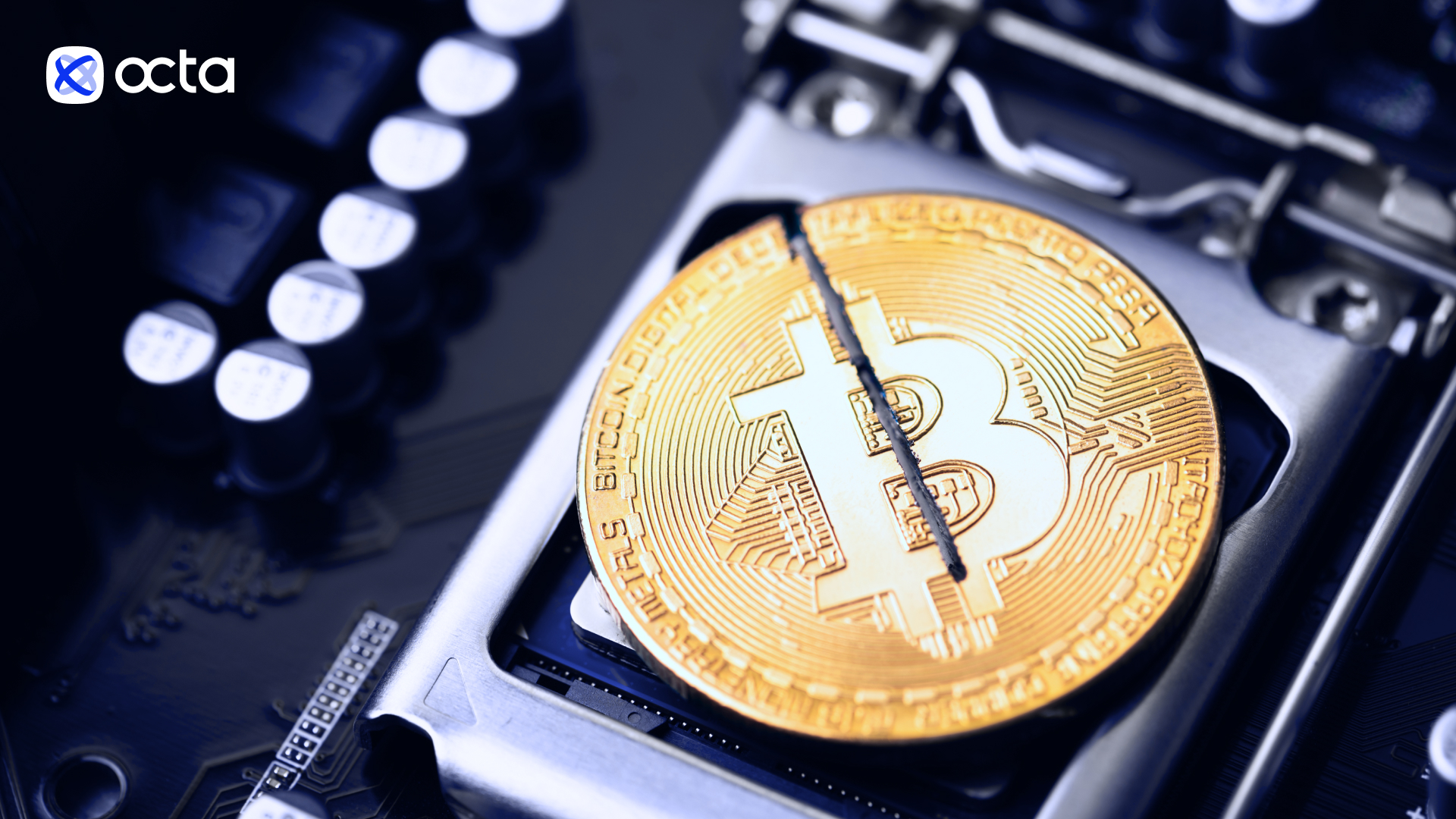BTC halving will occur when the number of blocks reaches 840,000 in April 2024. Then, the reward per block will decrease from 6.25 to 3.125 BTC. Usually, the bitcoin price rises for about six months before halving and is rather stable during the event. The primary growth occurs in the year following the halving. If Bitcoin mirrors its performance from the previous two periods, its price could reach the $220k mark in 2025.
KUALA LUMPUR, MALAYSIA 31 January 2024 – Bitcoin (BTC) halving will occur in April 2024, resulting in a 50% reduction in bitcoin mining speed. Historically, this event catalyses value growth and, therefore, attracts the attention of investors. To determine whether Bitcoin halving will push BTC to new heights, let’s explore and analyse the dynamics together.

Bitcoin, mining, halving—what you need to know
Bitcoin is a digital currency that operates on a decentralised computer network. Bitcoin was created in 2009 by an unknown group of individuals, or, according to some sources, a person named Satoshi Nakamoto. Bitcoin’s defining feature lies in its capped supply of 21 million coins acquired through the mining process. Mining uses computer power to solve complex mathematical puzzles and verify transactions on the Bitcoin network. Newly mined bitcoins are given to miners as a reward for their labour. However, the number of bitcoins miners receive for each block (set of transactions) varies. Every 210,000 blocks, or roughly every four years, miners’ rewards are cut in half. This phenomenon is referred to as ‘BTC halving’ or ‘halving’.
The purpose of Bitcoin halving is to maintain the currency’s scarcity and value while managing the inflation rate. The assumption is that as the number of new bitcoins issued decreases, demand for them will increase, and prices will rise accordingly. This is based on the economic concept of supply and demand. However, a halving event doubles the cost and complexity of mining, reducing miners’ profitability. This could lead to some miners leaving the market, reducing the hash rate—the overall computing power of the network—and potentially impacting its security.
The next Bitcoin halving will occur when the number of blocks reaches 840,000 in April 2024. The reward per block will decrease from 6.25 to 3.125 BTC at that time. This will be the fourth halving of the leading cryptocurrency in history. The previous three halvings occurred in 2012, 2016, and 2020.
Is it possible to make money from BTC halving?
Assuming constant demand, halving the supply is expected to double the asset’s value. Historical data indicates that investing in Bitcoin prior to a halving event has been a profitable strategy.
‘Usually, bitcoin starts to rise about six months before the halving, and it doesn’t change much during the halving period,’ said Kar Yong Ang, the Octa financial market analyst. ‘On average, in the past, the upper peak of the exchange rate can be observed more than a year after halving,’ he added.
Examining the price dynamics in the year preceding and following the halving events over the last three cycles reveals significant growth for Bitcoin. During these two-year spans, Bitcoin experienced remarkable increases: approximately 30,000% in 2012, 786% in 2016, and 712% in 2020. If Bitcoin continues to show the same performance this time, its price could reach the $220k mark in 2025.
For traders, it is important to focus on a shorter timeframe. Notably, 150 days after the first halving, the price of BTC surged by 928%, followed by a 16.6% increase after the second halving and a subsequent 25.8% rise after the third.
However, as factors such as significant hacks or bankruptcies of crypto companies, stock market conditions, whale manipulation, or regulatory changes reduce the coin issuance, future halving events may be less potent.





